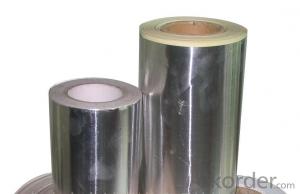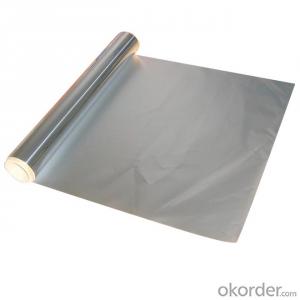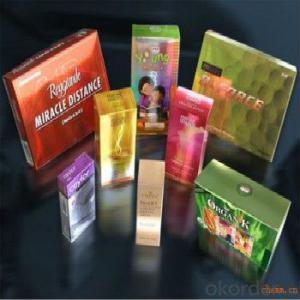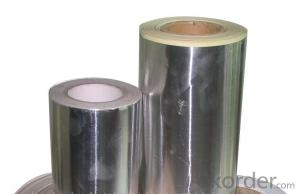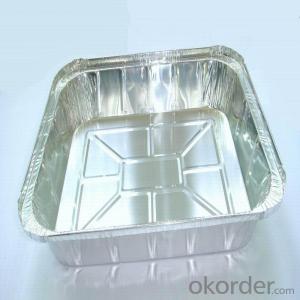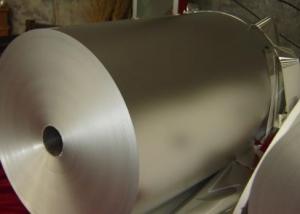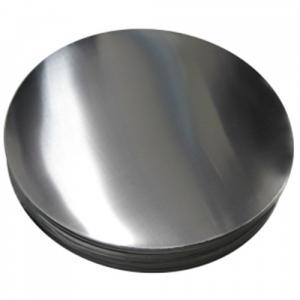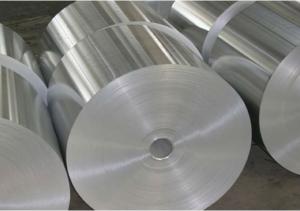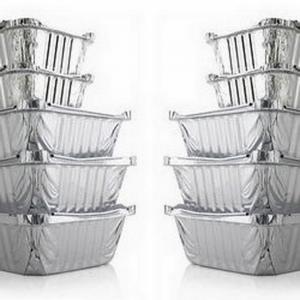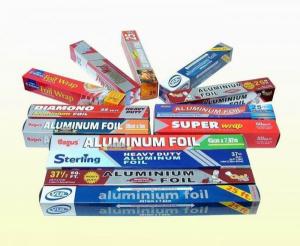Aluminum Chocolate Packaging Foil
- Loading Port:
- China Main Port
- Payment Terms:
- TT or LC
- Min Order Qty:
- 1 m.t.
- Supply Capability:
- 7000MT/MONTH m.t./month
OKorder Service Pledge
OKorder Financial Service
You Might Also Like
Quick details of Aluminium Foil for chocolate packaging
Alloy: 1235/8011/8079
Temper: O
Specifications of Aluminium Foil for chocolate packaging
Thickness & Tolerance: 0.006 mm-0.02mm (+/-6%)
Width & Tolerance: 200 - 1650 mm (+/-1 mm)
Standard: GB/T3198 / ASTM-B209 / EN546
Usage/Application of Aluminium Foil for chocolate packaging
For chocolate packaging
Packaging & Delivery of Aluminium Foil for chocolate packaging
Packing: seaworthy wooden box with pallet
Delivery: to be loaded by 1 x 20 feet container
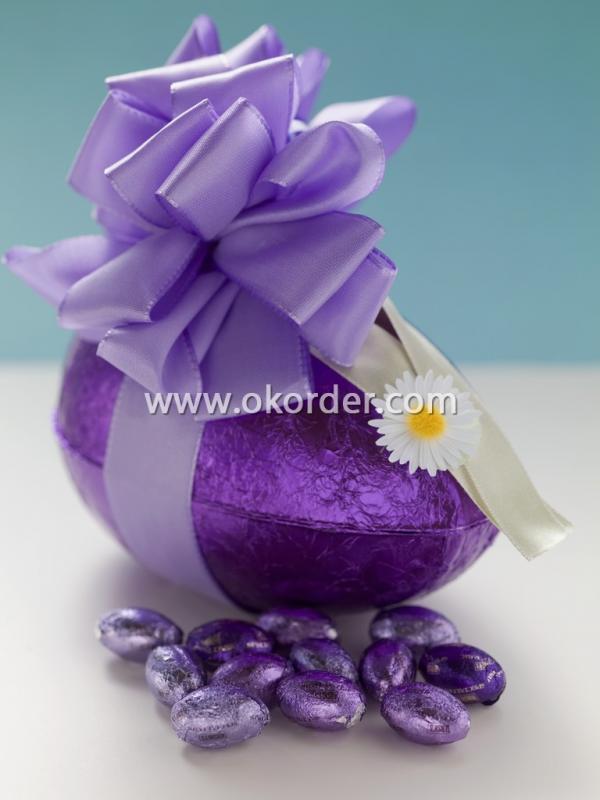
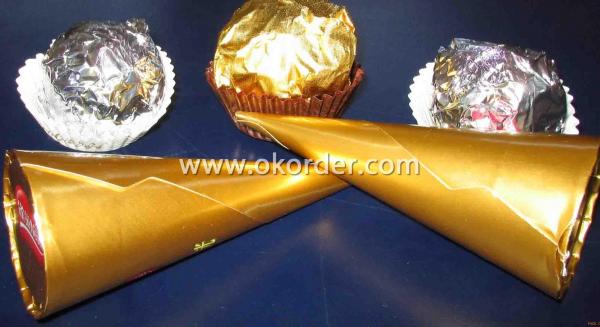
- Q: What precautions should be taken when using aluminum containers for food and beverages to ensure safety?
- <p>When using aluminum containers for food and drink, safety measures include avoiding prolonged storage of acidic or alkaline foods, as they can cause aluminum leaching. Do not heat aluminum containers in a microwave or expose them to high temperatures, as this can also lead to aluminum release. Regularly inspect containers for signs of wear or damage, as these can increase the risk of contamination. Always use food-grade aluminum containers and avoid using them for non-food items. Washing aluminum containers with mild detergents and avoiding abrasive cleaners can also help maintain their integrity and safety.</p>
- Q: Describe the characteristics and properties of aluminum oxide.
- <p>Aluminum oxide, also known as alumina, is a compound of aluminum and oxygen with the chemical formula Al2O3. It is a white solid that is insoluble in water but soluble in acid and base. It has a high melting point (over 2000掳C), high hardness, and is chemically inert. Aluminum oxide is also a good electrical insulator and has a high refractive index. It is used in various applications, including abrasives, refractory materials, and as a catalyst in chemical processes. Additionally, it is biocompatible and is used in medical implants and dental materials.</p>
- Q: What is the reaction of aluminum with alkaline solutions and what products are formed?
- <p>Aluminum reacts with alkaline solutions in a process known as an acid-base reaction. When aluminum comes into contact with an alkaline solution, such as sodium hydroxide (NaOH), it forms sodium aluminate (NaAlO2) and hydrogen gas (H2). The reaction can be represented by the following chemical equation: 2Al + 2NaOH + 6H2O 鈫?2NaAl(OH)4 + 3H2. In this reaction, aluminum acts as an acid, donating protons to the hydroxide ions (OH-) from the alkaline solution, resulting in the formation of a salt and hydrogen gas.</p>
- Q: Is it safe and effective to use aluminum foil to create a sandwich in a microwave oven?
- <p>No, you should not use aluminum foil to make a sandwich in a microwave oven. Aluminum foil can cause sparks and potentially start a fire due to its reflective properties and the microwave's electromagnetic radiation. It can also damage the microwave's interior. Instead, use microwave-safe containers or wraps designed for microwaving.</p>
- Q: This question asks for a list of typical flaws or imperfections that can occur in aluminum products.
- <p>Common defects in aluminum products include porosity, which refers to small holes or voids within the material; surface defects such as scratches, dents, and discoloration; mechanical defects like warping or deformation; and metallurgical defects such as inclusions or impurities. Additionally, aluminum products can suffer from corrosion, which can lead to pitting or general surface degradation, and stress corrosion cracking, which occurs under certain environmental conditions and stress. Each of these defects can impact the structural integrity, appearance, or performance of aluminum products.</p>
- Q: Is aluminum a suitable material for manufacturing electric wires and cables?
- <p>Yes, aluminum is commonly used to make electric wires and cables due to its excellent electrical conductivity, which is about 61% that of copper. It is lighter than copper and more abundant, making it cost-effective. Aluminum's high resistance to corrosion also makes it a durable choice for wiring. Despite its lower conductivity compared to copper, its lower cost and weight often make it the preferred material for power transmission lines and electrical wiring in various applications.</p>
- Q: Is it possible to utilize aluminum in car manufacturing to enhance fuel efficiency?
- <p>Yes, using aluminum in car manufacturing can contribute to increased fuel efficiency. Aluminum is lighter than traditional steel, which can reduce the overall weight of a vehicle. A lighter car requires less energy to move, which can lead to better fuel economy. Additionally, aluminum has good strength-to-weight ratio, allowing for a strong yet lighter structure. However, it's important to note that while aluminum can enhance fuel efficiency, it also has higher manufacturing costs and may not be as recyclable as steel.</p>
- Q: Explain the various applications of aluminum in the construction industry.
- <p>Aluminum is widely used in building materials due to its lightweight, high strength, and corrosion resistance. It's utilized in window frames, doors, curtain walls, and roofing systems for its durability and energy efficiency. Aluminum's malleability allows it to be shaped into various forms, making it ideal for facades and decorative elements. It's also used in structural components like beams and columns, and in electrical wiring due to its excellent conductivity. Additionally, aluminum's sustainability makes it a preferred choice in green building practices, as it's recyclable and has a low environmental impact.</p>
- Q: Is aluminum a suitable material for constructing aerospace structures?
- <p>Yes, aluminum is widely used in aerospace structures due to its high strength-to-weight ratio, corrosion resistance, and ease of fabrication. It is particularly favored for aircraft frames, wings, and fuselage components. Aluminum alloys are also used in spacecraft and satellite structures for their lightweight properties and ability to withstand extreme temperatures.</p>
- Q: What precautions should be taken when handling molten aluminum to ensure safety?
- <p>Safety measures for working with molten aluminum include wearing appropriate personal protective equipment (PPE) such as heat-resistant gloves, face shields, and fire-resistant clothing. Ensure proper ventilation to avoid inhaling fumes. Use non-ferrous tools to avoid reactions with molten aluminum. Keep the work area clean and free from water, as it can cause violent reactions. Train workers on emergency procedures and have fire extinguishers suitable for metal fires readily available. Always work in teams to ensure someone can assist in case of an emergency.</p>
1. Manufacturer Overview
| Location | Shandong, China |
| Year Established | 2007 |
| Annual Output Value | Above US$ 250 Million |
| Main Markets | Mid East; North America |
| Company Certifications | ISO 14001:2004;FDA |
2. Manufacturer Certificates
| a) Certification Name | |
| Range | |
| Reference | |
| Validity Period |
3. Manufacturer Capability
| a) Trade Capacity | |
| Nearest Port | Qingdao |
| Export Percentage | 41% - 50% |
| No.of Employees in Trade Department | 20-30 People |
| Language Spoken: | English; Chinese |
| b) Factory Information | |
| Factory Size: | Above 100,000 square meters |
| No. of Production Lines | 1 |
| Contract Manufacturing | Design Service Offered |
| Product Price Range | Average |
Send your message to us
Aluminum Chocolate Packaging Foil
- Loading Port:
- China Main Port
- Payment Terms:
- TT or LC
- Min Order Qty:
- 1 m.t.
- Supply Capability:
- 7000MT/MONTH m.t./month
OKorder Service Pledge
OKorder Financial Service
Similar products
Hot products
Hot Searches
Related keywords
















